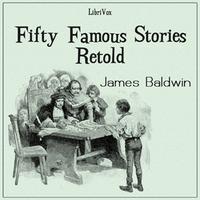32. A LACONIC ANSWER
32. UMA RESPOSTA LACÓNICA
MANY miles beyond Rome there was a famous country which we call Greece.
ローマの何マイルも先に、ギリシャと呼ばれる有名な国がありました。
МНОГИЕ мили за Римом была знаменитая страна, которую мы называем Грецией.
The people of Greece were not united like the Romans; but instead there were several states, each of which had its own rulers.
||||||||||||||||||||||правители
Yunanistan halkı Romalılar gibi birleşmiş değildi; ama bunun yerine, her birinin kendi yöneticisi olan birkaç devlet vardı.
Some of the people in the southern part of the country were called Spartans, and they were noted for their simple habits and their bravery.
国の南部の人々の中にはスパルタンと呼ばれるものもあり、彼らは単純な習慣と勇気で知られていました.
Некоторых людей в южной части страны называли спартанцами, и они были известны своими простыми привычками и храбростью.
Ülkenin güneyindeki bazı insanlara Spartalılar deniyordu ve basit alışkanlıkları ve cesaretleriyle tanınıyorlardı.
The name of their land was Laconia, and so they were sometimes called Lacons.
彼らの土地の名前はラコニアだったので、彼らはラコンと呼ばれることもありました。
One of the strange rules which the Spartans had, was that they should speak briefly, and never use more words than were needed.
スパルタ人が持っていた奇妙な規則の 1 つは、簡潔に話すべきであり、必要以上の言葉を使用してはならないというものでした。
Spartalıların sahip olduğu garip kurallardan biri, kısa konuşmaları ve ihtiyaç duyulandan daha fazla kelime kullanmamalarıydı.
And so a short answer is often spoken of as being laconic; that is, as being such an answer as a Lacon would be likely to give.
そのため、短い答えは簡潔であるとよく言われます。つまり、レイコンが与える可能性が高いのと同じような答えです。
И поэтому короткий ответ часто называют лаконичным; то есть как ответ, который Лакон мог бы дать.
Ve böylece kısa bir cevap çoğu zaman özlü olduğu şeklinde konuşulur; yani, bir Lacon gibi bir cevap olması muhtemeldir.
There was in the northern part of Greece a land called Macedon; and this land was at one time ruled over by a war-like king named Philip.
ギリシャの北部にマケドニアと呼ばれる土地がありました。そしてこの地は、かつてフィリップという好戦的な王によって支配されていました。
В северной части Греции была земля Македонская; и этой страной когда-то управлял воинственный король по имени Филипп.
Yunanistan'ın kuzey kesiminde Makedon denilen bir toprak vardı; ve bu topraklar bir zamanlar Philip adlı savaşa benzeyen bir kral tarafından yönetiliyordu.
Philip of Macedon wanted to become the master of all Greece.
Филипп Македонский хотел стать хозяином всей Греции.
Makedon Philip tüm Yunanistan'ın efendisi olmak istedi.
So he raised a great army, and made war upon the other states, until nearly all of them were forced to call him their king.
そこで彼は大軍を編成し、他の州と戦争を繰り広げ、ほとんどすべての州が彼を自分たちの王と呼ぶことを余儀なくされました。
Böylece büyük bir ordu kurdu ve neredeyse hepsi kralı demeye zorlanıncaya kadar diğer devletlere savaş yaptı.
Then he sent a letter to the Spartans in Laconia, and said, "If I go down into your country, I will level your great city to the ground."
Potom poslal Sparťanům do Lakónie dopis a řekl: "Jestli sestoupím do vaší země, srovnám vaše velké město se zemí."
それから彼はラコニアのスパルタ人に手紙を送り、「もし私があなたの国に行ったら、あなたの偉大な都市を壊してしまいます」と言った.
Затем он отправил письмо спартанцам в Лаконии и сказал: «Если я пойду в вашу страну, я выровняю ваш великий город до основания».
Sonra Laconia'daki Spartalılara bir mektup yolladı ve “Eğer ülkenize gidersem, büyük şehrinizi yere indiririm” dedi.
In a few days, an answer was brought back to him.
数日後、彼から返事が返ってきました。
Birkaç gün içinde ona bir cevap geri getirildi.
When he opened the letter, he found only one word written there.
Когда он открыл письмо, он нашел только одно слово, написанное там.
That word was "IF."
It was as much as to say, "We are not afraid of you so long as the little word 'if' stands in your way."
Bylo to stejné jako říct: "Nebojíme se tě, pokud ti v cestě stojí malé slůvko 'kdyby'."
「もし」という小さな言葉があなたの邪魔をしている限り、私たちはあなたを恐れていません。
Это было так же, как сказать: «Мы не боимся вас, пока на вашем пути стоит маленькое слово« если »».
Söylemek istediğim kadarıyla, "Eğer 'yolunda kalırsa' kelimesi kadar sizden korkmuyoruz."

